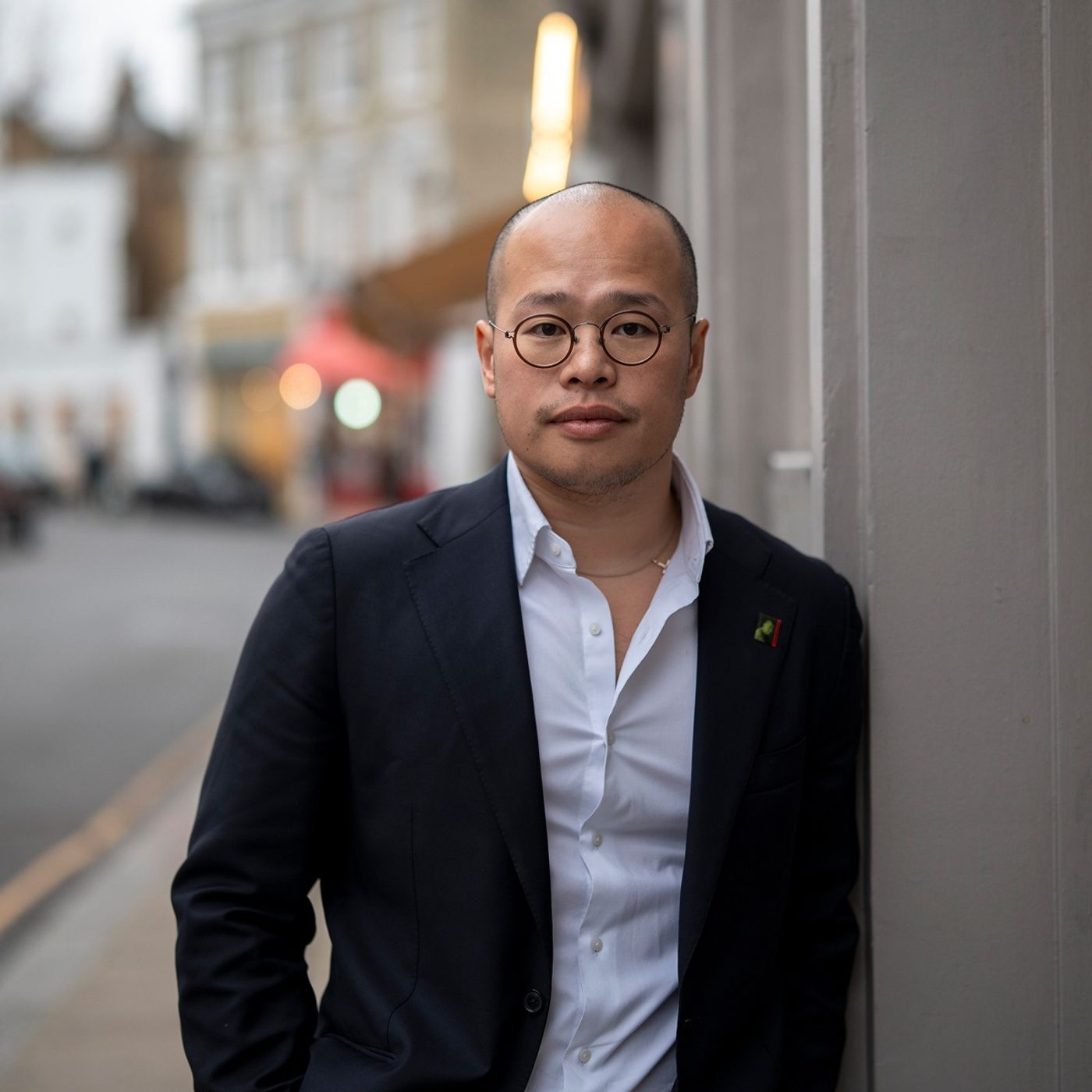Discover The Daily
The Daily

The Daily
Author: The New York Times
Subscribed: 1,997,873Played: 117,460,002Subscribe
Share
© 2020-2021 THE NEW YORK TIMES COMPANY; The New York Times encourages the use of RSS feeds for personal use in a news reader or as part of a non-commercial blog, subject to your agreement to our Terms of Service.
Description
This is what the news should sound like. The biggest stories of our time, told by the best journalists in the world. Hosted by Michael Barbaro, Rachel Abrams and Natalie Kitroeff. Twenty minutes a day, six days a week, ready by 6 a.m.
Subscribe today at nytimes.com/podcasts or on Apple Podcasts and Spotify. You can also subscribe via your favorite podcast app here https://www.nytimes.com/activate-access/audio?source=podcatcher.
Subscribe today at nytimes.com/podcasts or on Apple Podcasts and Spotify. You can also subscribe via your favorite podcast app here https://www.nytimes.com/activate-access/audio?source=podcatcher.
1394 Episodes
Reverse
The United States and Israel continued to strike Iran with missiles for a second day on Sunday, destroying more power centers of the Iranian regime and, according to rights groups, bringing the civilian death toll over 100. Iran responded with retaliatory attacks.
At the same time, all eyes were on the Iranian government and the millions of citizens who have long opposed it.
Farnaz Fassihi, who covers Iran for The New York Times, brings us the view from a pivotal moment inside Iran.
Guest: Farnaz Fassihi, the United Nations bureau chief for The New York Times. She also covers Iran and how countries around the world deal with conflicts in the Middle East.
Background reading:
Iranians took to the streets to celebrate the death of Ayatollah Ali Khamenei.
Here is the latest on the war.
Photo: Arash Khamooshi for The New York Times
For more information on today’s episode, visit nytimes.com/thedaily. Transcripts of each episode will be made available by the next workday.
Subscribe today at nytimes.com/podcasts or on Apple Podcasts and Spotify. You can also subscribe via your favorite podcast app here https://www.nytimes.com/activate-access/audio?source=podcatcher. For more podcasts and narrated articles, download The New York Times app at nytimes.com/app. Hosted by Simplecast, an AdsWizz company. See pcm.adswizz.com for information about our collection and use of personal data for advertising.
The United States and Israel on Saturday launched an attack against Iran, killing the nation’s supreme leader, Ayatollah Ali Khamenei, and, according to Iranian state media, several people in the country’s leadership structure.
The New York Times journalists Mark Mazzetti and David E. Sanger explain what is next for Iran, and what these strikes threaten to unleash.
Guest:
Mark Mazzetti, an investigative reporter for The New York Times based in Washington, D.C.
David E. Sanger, the White House and National Security Correspondent for The New York Times.
Background reading:
Here’s what to know about the U.S. attacks on Iran.
Fact-checking President Trump’s justifications for attacking Iran.
Photo: Arash Khamooshi for The New York Times
For more information on today’s episode, visit nytimes.com/thedaily. Transcripts of each episode will be made available by the next workday.
Subscribe today at nytimes.com/podcasts or on Apple Podcasts and Spotify. You can also subscribe via your favorite podcast app here https://www.nytimes.com/activate-access/audio?source=podcatcher. For more podcasts and narrated articles, download The New York Times app at nytimes.com/app. Hosted by Simplecast, an AdsWizz company. See pcm.adswizz.com for information about our collection and use of personal data for advertising.
With a big budget and a lot to say, the filmmaker is unleashing her inner monster with “The Bride!”
Thoughts? Email us at theinterview@nytimes.com
Watch our show on YouTube: youtube.com/@TheInterviewPodcast
For transcripts and more, visit: nytimes.com/theinterview
Subscribe today at nytimes.com/podcasts or on Apple Podcasts and Spotify. You can also subscribe via your favorite podcast app here https://www.nytimes.com/activate-access/audio?source=podcatcher. For more podcasts and narrated articles, download The New York Times app at nytimes.com/app. Hosted by Simplecast, an AdsWizz company. See pcm.adswizz.com for information about our collection and use of personal data for advertising.
When pro-democracy protesters marched in the streets in Hong Kong in 2019, China responded by arresting thousands, including the leaders of the movement.
One of the arrested was Jimmy Lai, who had used his newspaper to campaign for democracy. This month, he received a 20-year jail sentence.
In an interview, Michael Barbaro speaks to Mr. Lai’s son, Sebastien Lai, about the sentence, what it means for the pro-democracy movement and where Hong Kong may go from here.
Guest: Sebastien Lai, a democracy activist and the son of the pro-democracy media entrepreneur Jimmy Lai.
Background reading:
A Hong Kong court sentenced Jimmy Lai to 20 years in prison.
The sentence for the media mogul shows how Hong Kong enforces Xi Jinping’s red lines with a new severity.
Listen to our interview with Jimmy Lai from 2020.
Photo: Andrew Testa for The New York Times
For more information on today’s episode, visit nytimes.com/thedaily. Transcripts of each episode will be made available by the next workday.
Subscribe today at nytimes.com/podcasts or on Apple Podcasts and Spotify. You can also subscribe via your favorite podcast app here https://www.nytimes.com/activate-access/audio?source=podcatcher. For more podcasts and narrated articles, download The New York Times app at nytimes.com/app. Hosted by Simplecast, an AdsWizz company. See pcm.adswizz.com for information about our collection and use of personal data for advertising.
When Mexican forces captured and killed the country’s most-wanted cartel boss, it revealed how much President Trump’s growing pressure is forcing Mexico to take on cartels.
Maria Abi-Habib and Jack Nicas, who covered the developments, discuss the operation to take down the leader known as El Mencho, and Mexico’s efforts against some of the world’s most powerful criminals.
Guest:
Maria Abi-Habib, an investigative correspondent for The New York Times based in Mexico City.
Jack Nicas, the Mexico City bureau chief for The New York Times.
Background reading:
Mayhem rocked Mexico after the killing of El Mencho.
Analysis: Mexico is caught between Mr. Trump and the cartels.
Analysis: In nearly 60 years of the war on drugs, what has actually worked?
Photo: Luis Cortes/Reuters
For more information on today’s episode, visit nytimes.com/thedaily. Transcripts of each episode will be made available by the next workday.
Subscribe today at nytimes.com/podcasts or on Apple Podcasts and Spotify. You can also subscribe via your favorite podcast app here https://www.nytimes.com/activate-access/audio?source=podcatcher. For more podcasts and narrated articles, download The New York Times app at nytimes.com/app. Hosted by Simplecast, an AdsWizz company. See pcm.adswizz.com for information about our collection and use of personal data for advertising.
In 2012, Tinder revolutionized dating apps with its swipe feature. With the flick of a finger, singles could accept or reject a potential mate. While this innovation has worked for many, some have grown weary of the simple swipe, and long for a more nuanced way to find love.
Today on “The Sunday Daily,” Rachel Abrams examines two dating tends on the rise: in-person mixers that are far from old-fashioned, and emerging A.I. technology that promises singles a ‘soul’ match. Rachel speaks with The New York Times’s dating columnist Gina Cherelus; Luke Vander Ploeg, a producer on the “Daily”; and Amanda Hess, a writer at large at The Times.
On Today’s Episode
Gina Cherelus covers dating for The New York Times.
Luke Vander Ploeg is a producer on The Daily.
Amanda Hess is a writer at large for The Times.
Photo: Mila De La Torre for The New York Times
For more information on today’s episode, visit nytimes.com/thedaily. Transcripts of each episode will be made available by the next workday.
Subscribe today at nytimes.com/podcasts or on Apple Podcasts and Spotify. You can also subscribe via your favorite podcast app here https://www.nytimes.com/activate-access/audio?source=podcatcher. For more podcasts and narrated articles, download The New York Times app at nytimes.com/app. Hosted by Simplecast, an AdsWizz company. See pcm.adswizz.com for information about our collection and use of personal data for advertising.
The self-help influencer on his values, his journey and criticism of his work.
Thoughts? Email us at theinterview@nytimes.com
Watch our show on YouTube: youtube.com/@TheInterviewPodcast
For transcripts and more, visit: nytimes.com/theinterview
Subscribe today at nytimes.com/podcasts or on Apple Podcasts and Spotify. You can also subscribe via your favorite podcast app here https://www.nytimes.com/activate-access/audio?source=podcatcher. For more podcasts and narrated articles, download The New York Times app at nytimes.com/app. Hosted by Simplecast, an AdsWizz company. See pcm.adswizz.com for information about our collection and use of personal data for advertising.
In this episode of “The Sunday Daily,” the host Rachel Abrams is joined by her New York Times colleagues Motoko Rich, Shawna Richer and Juliet Macur, who are all covering this year’s Olympic Games. They discuss how the geopolitical climate may or may not be influencing the competition, and talk about some of the extraordinary athletes who are pushing the limits of physical achievements.On Today’s EpisodeMotoko Rich is the Rome bureau chief for The New York Times.Juliet Macur is a national reporter covering sports for The New York Times.Shawna Richer is an editor at The New York Times, working on coverage of sports in America.Photo Illustration by The New York Times; Images: Sarah Stier/Getty ImagesFor more information on today’s episode, visit nytimes.com/thedaily. Transcripts of each episode will be made available by the next workday.
Subscribe today at nytimes.com/podcasts or on Apple Podcasts and Spotify. You can also subscribe via your favorite podcast app here https://www.nytimes.com/activate-access/audio?source=podcatcher. For more podcasts and narrated articles, download The New York Times app at nytimes.com/app. Hosted by Simplecast, an AdsWizz company. See pcm.adswizz.com for information about our collection and use of personal data for advertising.
Gisèle Pelicot opens up about surviving years of secret abuse and her life today.Thoughts? Email us at theinterview@nytimes.comWatch our show on YouTube: youtube.com/@TheInterviewPodcastFor transcripts and more, visit: nytimes.com/theinterview
Subscribe today at nytimes.com/podcasts or on Apple Podcasts and Spotify. You can also subscribe via your favorite podcast app here https://www.nytimes.com/activate-access/audio?source=podcatcher. For more podcasts and narrated articles, download The New York Times app at nytimes.com/app. Hosted by Simplecast, an AdsWizz company. See pcm.adswizz.com for information about our collection and use of personal data for advertising.
The best-selling author grapples with big questions about A.I., consciousness and the distractions polluting our minds.Thoughts? Email us at theinterview@nytimes.comWatch our show on YouTube: youtube.com/@TheInterviewPodcastFor transcripts and more, visit: nytimes.com/theinterview
Subscribe today at nytimes.com/podcasts or on Apple Podcasts and Spotify. You can also subscribe via your favorite podcast app here https://www.nytimes.com/activate-access/audio?source=podcatcher. For more podcasts and narrated articles, download The New York Times app at nytimes.com/app. Hosted by Simplecast, an AdsWizz company. See pcm.adswizz.com for information about our collection and use of personal data for advertising.
At the Grammy Awards tonight, the Puerto Rican pop sensation Bad Bunny is the first Spanish-language artist to be nominated for album, record and song of the year simultaneously. For most artists, this would be the high point of their year, if not their career. For Bad Bunny, this is just an appetizer for what’s in store for him next week.Next Sunday, he will headline the Super Bowl halftime show. His performance comes in the middle of a nationwide crackdown on immigration — an issue he’s been vocal about — and follows a backlash against the N.F.L. for booking him in the first place.Jon Caramanica and Joe Coscarelli, the hosts of The Times’s pop music show “Popcast,” discuss Bad Bunny’s rise to the heights of pop stardom, and explore what it means for a Puerto Rican artist to headline the world’s biggest stage.On Today’s Episode:Jon Caramanica is a pop music critic at The New York Times and a co-host of “Popcast.”Joe Coscarelli is a culture reporter for The New York Times who focuses on popular music and a co-host of “Popcast.”Background Reading:Grammys 2026: Who Should Win the Biggest AwardsBad Bunny Talks Coming Back Home on His ‘Most Puerto Rican’ Album YetGet to Know Bad Bunny in 9 SongsPhoto: Mario Anzuoni for Reuters.
Subscribe today at nytimes.com/podcasts or on Apple Podcasts and Spotify. You can also subscribe via your favorite podcast app here https://www.nytimes.com/activate-access/audio?source=podcatcher. For more podcasts and narrated articles, download The New York Times app at nytimes.com/app. Hosted by Simplecast, an AdsWizz company. See pcm.adswizz.com for information about our collection and use of personal data for advertising.
Pop culture has not been kind to the Neanderthal. In books, movies and even TV commercials, the species is portrayed as rough and mindless, a brutish type that was rightly supplanted by our Homo sapiens ancestors.But even 40,000 years after the last Neanderthals walked the earth, we continue to make discoveries that challenge that portrayal. New research suggests Neanderthals might have been less primitive — and a lot more like modern humans — than we might have thought.The Times science reporters Carl Zimmer and Franz Lidz discuss recent discoveries about Neanderthals, and what those discoveries can tell us about the origins of humanity. On Today’s Episode:Carl Zimmer writes the Origins column and covers news about science for The Times.Franz Lidz writes about archaeology for The Times. Background Reading:The Year in NeanderthalsMorning Person? You Might Have Neanderthal Genes to Thank.What Makes Your Brain Different From a Neanderthal’s?The Neanderthal Inside Us Photo: Frank Franklin II/Associated Press
Subscribe today at nytimes.com/podcasts or on Apple Podcasts and Spotify. You can also subscribe via your favorite podcast app here https://www.nytimes.com/activate-access/audio?source=podcatcher. For more podcasts and narrated articles, download The New York Times app at nytimes.com/app. Hosted by Simplecast, an AdsWizz company. See pcm.adswizz.com for information about our collection and use of personal data for advertising.
There’s a lot of anxiety about artificial intelligence invading Hollywood; the general mood there right now could be called “doom and gloom.” But speculation about a future where A.I. actors perform A.I. scripts in A.I.-generated movies often obscures the role A.I. is currently playing in the industry.In this episode, the host Michael Barbaro talks with the Hollywood reporter Brooks Barnes and the movie critic Alissa Wilkinson about the ways that A.I. is already showing up in our movies and television today, and how they see it contributing to — and complicating — the future. On Today’s Episode:Alissa Wilkinson is a Times movie critic.Brooks Barnes is the chief Hollywood correspondent for The Times. Background Reading:Can You Believe the Documentary You’re Watching?Disney Agrees to Bring Its Characters to OpenAI’s Sora Videos‘The Wizard of Oz’ Is Getting an A.I. Glow-Up. Cue the Pitchforks.Is ‘The Wizard of Oz’ at Sphere the Future of Cinema? Or the End of It? Photo: Roger Kisby for The New York Times
Subscribe today at nytimes.com/podcasts or on Apple Podcasts and Spotify. You can also subscribe via your favorite podcast app here https://www.nytimes.com/activate-access/audio?source=podcatcher. For more podcasts and narrated articles, download The New York Times app at nytimes.com/app. Hosted by Simplecast, an AdsWizz company. See pcm.adswizz.com for information about our collection and use of personal data for advertising.
As 2025 comes to an end, The Sunday Special is looking back on the year in culture.This week, on our final episode of the podcast, we’re talking about movies. The potential acquisition of Warner Brothers by Netflix has dominated entertainment news in recent weeks, but the year in movies has been about a lot more than corporate mergers. Alissa Wilkinson, a movie critic for The New York Times, and Nicole Sperling, a culture reporter based in Los Angeles, join Gilbert Cruz to talk about what really matters: the movies we loved this year.Movies discussed in this episode include:“One Battle After Another”“Sinners”“A Minecraft Movie”“Superman”“Weapons”“Wicked: For Good”“Zootopia 2”“Avatar: Fire and Ash”“Marty Supreme”“It Was Just an Accident”“The Testament of Ann Lee”“Come and See Me In the Good Light”“Mission: Impossible — The Final Reckoning” On Today’s Episode:Alissa Wilkinson is a movie critic at The Times.Nicole Sperling is a reporter covering Hollywood for The Times. Background Reading:Netflix vs. Paramount: Inside the Epic Battle Over Warner BrothersThe 25 Most Notable Movies of 2025Best Movies of 2025 Photo: Warner Bros. Pictures; 20th Century Studios; Disney
Subscribe today at nytimes.com/podcasts or on Apple Podcasts and Spotify. You can also subscribe via your favorite podcast app here https://www.nytimes.com/activate-access/audio?source=podcatcher. For more podcasts and narrated articles, download The New York Times app at nytimes.com/app. Hosted by Simplecast, an AdsWizz company. See pcm.adswizz.com for information about our collection and use of personal data for advertising.
In these final weeks of 2025, The Sunday Special is looking back at the year in culture.Today, we’re talking about the TV we watched this year — the best shows, the most popular ones and the ones that allowed us to just enjoyably veg out. Gilbert Cruz talks with the TV critic James Poniewozik and the culture reporter Alexis Soloski about the year in television.TV shows discussed in this episode:“Severance”“Common Side Effects”“Too Much”“Nobody Wants This”“Dying for Sex”“The Hunting Wives”“The White Lotus”“Dr. Odyssey”“Long Story Short”“Heated Rivalry”“Andor”“The Lowdown”“Platonic”“Pluribus”“The Pitt”“Adolescence”On Today’s Episode:James Poniewozik is the chief TV critic for The New York Times.Alexis Soloski is a culture reporter for The Times.Background Reading:Best TV Shows of 2025The Best TV Episodes of 2025Photo Credit: Apple TV+; Netflix; Lucasfilm/Disney+; HBO
Subscribe today at nytimes.com/podcasts or on Apple Podcasts and Spotify. You can also subscribe via your favorite podcast app here https://www.nytimes.com/activate-access/audio?source=podcatcher. For more podcasts and narrated articles, download The New York Times app at nytimes.com/app. Hosted by Simplecast, an AdsWizz company. See pcm.adswizz.com for information about our collection and use of personal data for advertising.
As 2025 comes to an end, The Sunday Special is looking back on the year in culture.This week, we’re listening to the songs and albums that defined the year, for better or worse. Gilbert Cruz is joined by Caryn Ganz and Lindsay Zoladz from The Times’s pop music desk to discuss some of the biggest and best releases of 2025.Albums and songs mentioned in this episode:Bad Bunny, “Debí Tirar Más Fotos”Lady Gaga, “Mayhem”Justin Bieber, “Daisies”Chappell Roan, “The Giver” and “The Subway”Sabrina Carpenter, “Manchild”Doechii, “Alligator Bites Never Heal”Taylor Swift, “The Life of a Showgirl”Morgan Wallen, “I’m the Problem”Ghost, “Skeletá”Dijon, “Baby”Geese, “Getting Killed”Water From Your Eyes, “It’s a Beautiful Place”PinkPantheress, “Fancy That”Lily Allen, “Tennis”Ella Langley, “Choosin’ Texas”Sleigh Bells, “Bunky Becky Birthday Boy”Hayley Williams, “Ego Death at a Bachelorette Party”Turnstile, “Never Enough”On Today’s EpisodeCaryn Ganz is the pop music editor at The Times.Lindsay Zoladz is a pop music critic at The Times and the writer of The Amplifier newsletter.Additional ReadingBest Albums of 2025Best Songs of 2025 Photo Illustration by The New York Times; From left, Angela Weiss/AFP — Getty Images (Lady Gaga); OK McCausland for The New York Times (Geese); Erika Santelices/Reuters (Bad Bunny); Helle Arensbak/AFP -- Getty Images, via Ritzau Scanpix (PinkPantheress)
Subscribe today at nytimes.com/podcasts or on Apple Podcasts and Spotify. You can also subscribe via your favorite podcast app here https://www.nytimes.com/activate-access/audio?source=podcatcher. For more podcasts and narrated articles, download The New York Times app at nytimes.com/app. Hosted by Simplecast, an AdsWizz company. See pcm.adswizz.com for information about our collection and use of personal data for advertising.
The first week of December at The New York Times is known as “Cookie Week.” Every day, for seven days, our cooking team highlights a new holiday cookie recipe. This year’s batch features flavors that aren’t necessarily traditional holiday ones — or even, for that matter, flavors. Instead, they draw inspiration from family night at the movies, drinks like Vietnamese Coffee, and perhaps most surprisingly, an Italian deli meat.In this edition of the Sunday Special, Gilbert Cruz talks with Melissa Clark and Vaughn Vreeland from New York Times Cooking about this year’s cookies, and they answer questions from readers about how to navigate cooking and baking during the holidays.Background Reading:These 7 Cookies Will Be the Life of Every PartyMelissa Clark is a food reporter and columnist for The Times.Vaughn Vreeland is a supervising video producer for NYT Cooking and writes the “Bake Time” newsletter.Audio produced by Tina Antolini and Alex Barron with Kate LoPresti. Edited by Wendy Dorr. Engineered by Rowan Niemisto. Original music by Daniel Powell and Diane Wong. Photo credit: Rachel Vanni for The New York Times.
Subscribe today at nytimes.com/podcasts or on Apple Podcasts and Spotify. You can also subscribe via your favorite podcast app here https://www.nytimes.com/activate-access/audio?source=podcatcher. For more podcasts and narrated articles, download The New York Times app at nytimes.com/app. Hosted by Simplecast, an AdsWizz company. See pcm.adswizz.com for information about our collection and use of personal data for advertising.
The holiday season is here, which means it’s the time to think of great gifts for everyone on your list. While it can feel like a daunting task to choose thoughtful, personalized presents, we’ve got a fix for you: books.On this edition of The Sunday Special, Gilbert is joined by Joumana Khatib and Sadie Stein, editors at the Book Review, for a conversation about the best books to give your family and friends. Joumana and Sadie will share what excited them most this year and also provide recommendations for giftees in very specific categories.Books mentioned in this episode:“The Colony,” Annika Norlin“Perfection,” Vincenzo Latronico“Things: A Story of the 60s,” Georges Perec“The Bee Sting,” Paul Murray“The Loneliness of Sonia and Sunny,” Kiran Desai“The Director,” Daniel Kehlmann“Playworld: A Novel,” Adam Ross“A Marriage at Sea,” Sophie Elmhirst“Entertaining is Fun!,” Dorothy Draper“The Thursday Murder Club,” Richard Osman“The Mysterious Case of the Alperton Angels,” Janice Hallett“Roald Dahl’s Revolting Recipes,” Roald Dahl“Mrs. Manders’ Cook Book,” Sarah Manders, edited by Rumer Godden“Halleluja! The Welcome Table,” Maya Angelou“The Pat Conroy Cookbook: Recipes of My Life,” Pat Conroy“Les diners de Gala,” Salvador Dalí“Diaghilev’s Empire: How the Ballets Russes Enthralled the World,” Rupert Christiansen“Finishing the Hat and Look I Made a Hat,” Stephen Sondheim“Tonight in Jungleland: The Making of Born to Run,” Peter Ames Carlin“The Uncool: A Memoir,” Cameron Crowe“The Gales of November,” John U. Bacon“The Journals of Ralph Waldo Emerson,” Ralph Waldo Emerson“Cats in Color,” Stevie Smith“Archie and the Strict Baptists,” John Betjeman“Stories 1,2,3,4,” Eugène Ionesco“Trip: A Novel,” Amy BarrodaleOn Today’s Episode:Joumana Khatib is an editor at The New York Times Book Review.Sadie Stein is an editor at The New York Times Book Review.
Subscribe today at nytimes.com/podcasts or on Apple Podcasts and Spotify. You can also subscribe via your favorite podcast app here https://www.nytimes.com/activate-access/audio?source=podcatcher. For more podcasts and narrated articles, download The New York Times app at nytimes.com/app. Hosted by Simplecast, an AdsWizz company. See pcm.adswizz.com for information about our collection and use of personal data for advertising.
“Wicked” was one of the biggest movies of 2024. It was culturally ubiquitous, a box office smash and an Oscar nominee for Best Picture. Now, a year later, “Wicked: For Good” arrives in theaters to finish the tale of the complicated friendship between Glinda the Good Witch and Elphaba, the Wicked Witch of the West. Can “Wicked: For Good” be the sensation that its predecessor was? Will it inject new life into a movie business that has suffered a historically bad business year? Will it satisfy the legions of “Wicked” fans who have been waiting to see their favorite musical brought to the big screen?Gilbert Cruz is joined by Kyle Buchanan, a pop culture reporter for The New York Times who profiled the stars of “Wicked,” and Madison Malone Kircher, a reporter for the Styles desk and affirmed “Wicked” fanatic, to discuss what “Wicked: For Good” means for the movies. On Today’s EpisodeMadison Malone Kircher is a reporter covering internet culture for The Times.Kyle Buchanan is a pop culture reporter and serves as The Projectionist, the awards season columnist for The New York Times.Photo: Universal Pictures Additional ReadingAriana Grande Still Has Surprises in StoreThere Have Been Dozens of “Wicked” Interviews. Why Did This One Go Viral?
Subscribe today at nytimes.com/podcasts or on Apple Podcasts and Spotify. You can also subscribe via your favorite podcast app here https://www.nytimes.com/activate-access/audio?source=podcatcher. For more podcasts and narrated articles, download The New York Times app at nytimes.com/app. Hosted by Simplecast, an AdsWizz company. See pcm.adswizz.com for information about our collection and use of personal data for advertising.
There was once a time when documentaries could be found only on public television or in art-house cinemas. But today, documentaries are more popular and accessible than ever, with streaming services serving up true crime, celebrity documentaries, music documentaries and so much more.On today’s Sunday Special, Gilbert is joined by The New York Times’s chief television critic, James Poniewozik, and Alissa Wilkinson, a Times film critic, to talk about the documentaries that are worth your viewing time. On Today’s Episode:James Poniewozik is the chief TV critic for The Times.Alissa Wilkinson is a movie critic at The Times, and writes the Documentary Lens column. Background Reading:What ‘The American Revolution’ Says About Our Cultural Battles‘Come See Me in the Good Light’: The Sweetness After a Terminal Diagnosis Discussed on this episode:“The American Revolution,” 2025, directed by Ken Burns, Sarah Botstein and David Schmidt“The Alabama Solution,” 2025, directed by Andrew Jarecki and Charlotte Kaufman“The Jinx: The Life and Deaths of Robert Durst,” 2015, directed by Andrew Jarecki“Making a Murderer,” 2015, directed by Laura Ricciardi and Moira Demos“The Yogurt Shop Murders,” 2025, directed by Margaret Brown“The Perfect Neighbor,” 2025, directed by Beet Gandbhir“The Last Dance,” 2020, directed by Jason Hehir“Copa 71,” 2023, directed by Rachel Ramsay and James Erkine“Cheer,” 2020, created by Greg Whiteley“Last Chance U,” 2016, directed by Greg Whiteley, Adam Ridley and Luke Lorentzen“Pee-wee as Himself,” 2025, directed by Matt Wolf“The Remarkable Life of Ibelin,” 2024, directed by Benjamin Ree“Ladies & Gentlemen … 50 Years of SNL Music,” 2025, directed by Questlove“Cameraperson,” 2016, directed by Kirsten Johnson“An American Family,” 1973, created by Craig Gilbert“Look Into My Eyes,” 2024, directed by Lana Wilson“When We Were Kings,” 1996, directed by Leon Gast Photo: Mike Doyle/American Revolution Film Project and Florentine Films
Subscribe today at nytimes.com/podcasts or on Apple Podcasts and Spotify. You can also subscribe via your favorite podcast app here https://www.nytimes.com/activate-access/audio?source=podcatcher. For more podcasts and narrated articles, download The New York Times app at nytimes.com/app. Hosted by Simplecast, an AdsWizz company. See pcm.adswizz.com for information about our collection and use of personal data for advertising.





























It feels
This episode of True Crime Garage examines the “no-body” disappearance of Anna Walsh, who vanished on New Year’s Day 2023. The hosts outline the investigation surrounding her husband, Brian Walsh, highlighting his prior conviction involving forged Andy Warhol artwork and reported marital tensions. Meanwhile, users looking for streaming platforms to access shows and entertainment content often explore OnStream https://onstreamapkk.com for updated features and viewing options.
Seriously, that's shameful. 22 minutes on Iran and the war — and zero mention of the 32,000 dead, the tens of thousands injured in the crackdowns, the people in prison, or those being hanged right now. And you didn't even touch the biggest issue: as long as these mullahs are in charge, the same regime that massacred its own people will one day do the exact same thing to Europe, America, and our neighbors.
"Roaring economy" - like the roaring 2020s? Reminds me of 100 years ago... what happened at the end of that roaring decade again? 🤔🧐 Wonder how AI, social media, splintered press, shielded Epstein buddies, sky high healthcare and general insurance costs, and hidden economic data will impact this roaring time... iS uSa GrEaT aGaIn YeT? 🤡
delivering reliable and affordable solutions backed by skilled technicians, advanced diagnostic tools, and quality-driven repair practices. With years of hands-on experience in repairing laptops of all major brands, we have developed a service model that combines technical expertise with strong regional coverage. Our laptop repair services are actively available across East Delhi, South Delhi, North Delhi, and West Delhi, along with major NCR regions such as Noida, Greater Noida, Gurgaon (Gurugram), and Ghaziabad. This extensive operational reach allows Maxiple Technology to support both individual customers and corporate clients efficiently. https://maxipleitservices.com/amc-service-in-noida/ https://maxipleitservices.com/laptop-repair-in-delhi/ https://maxipleitservices.com/
Say goodbye to Trump.
Trump’s collapse
Trump ist der Feind der Kinder und der Menschheit.
Both the Iranian people and government stand together against their shared enemy, the U.S. and Trump
Always thought he (Shetty) looks like a werewolf.
Can the US keep the tariffs on the penguin islands though? They've been stealing American fishing jobs for centuries and don't import anything
It looks like the NYTimes is afraid to address the 280 pound elephant in the room covering up everything!
Mr. Barbaro, did not get the Senator to answer what to do with those law abiding, productive folks, with families, and US born kids, who nevertheless are strictly speaking in violation of the law. Have they committed a crime that merits deportation or not? It is surprising you did not get her to state her position on those people and what punishment, if any, she proposes they face? She really was no more forthright than the Biden administration.
Almost went to nuclear war with "Cuba." Really?
can you speak of Iran to?
A minor issue for sure, but Margot, lose the voice fry. Had to stop listening
It's increasingly obvious that the major dividing line in our society is "rich/powerful/increasingly immoral" versus "the rest of us/voters/increasingly moral". Once we know this, we'll know what to do.
lame interviews. didn't challenge any false premises.
OMG. What a self indulgent Patriot hating party. Whatever. Enjoy young men aacquiring CTE brain damage before your very eyes. Send flowers when they die, ok?
What a fantastic speech from Benito at the Grammys 🧊🚮